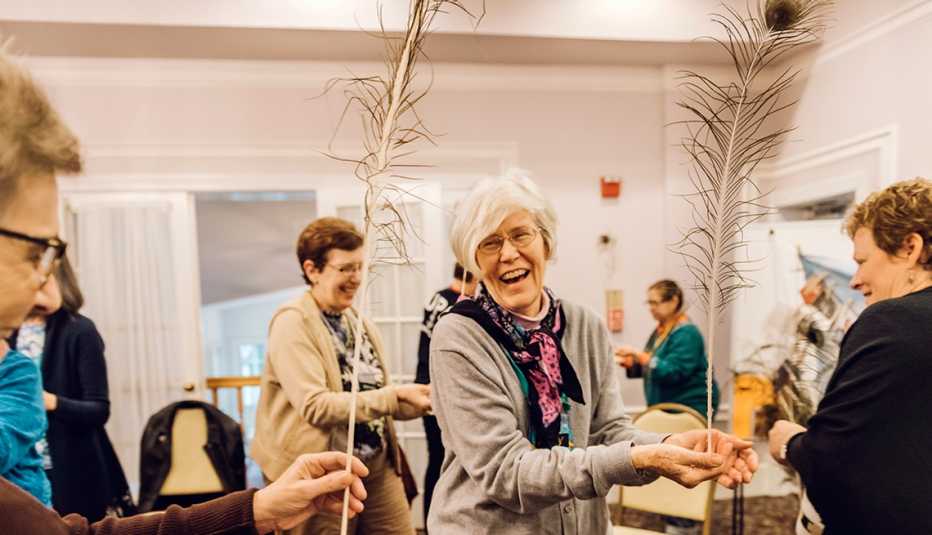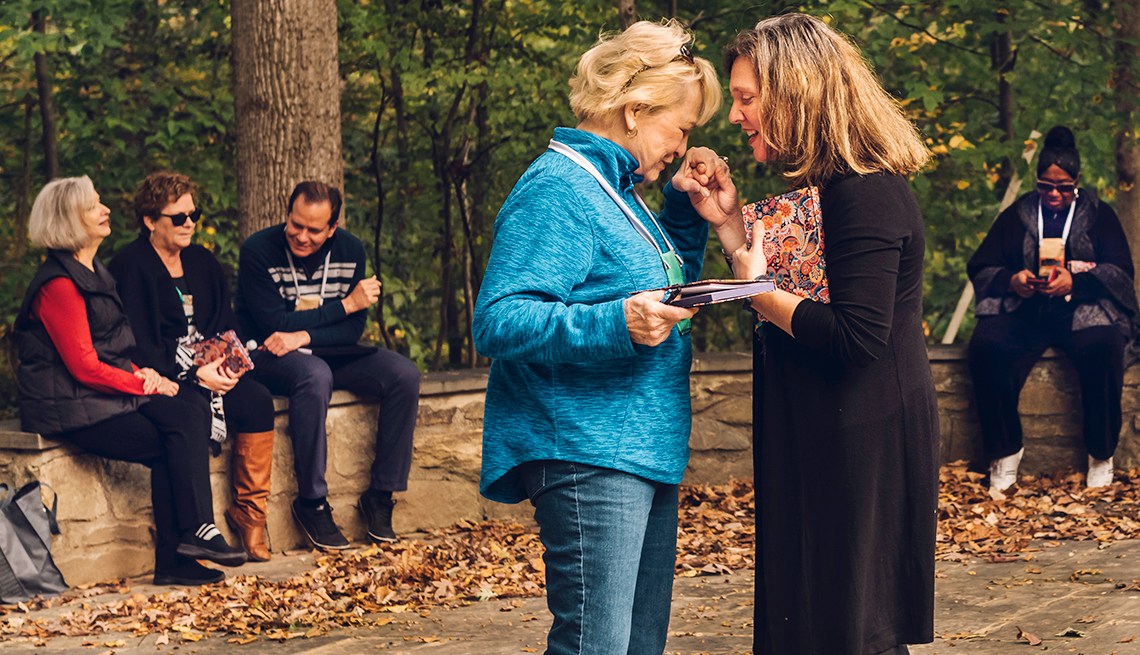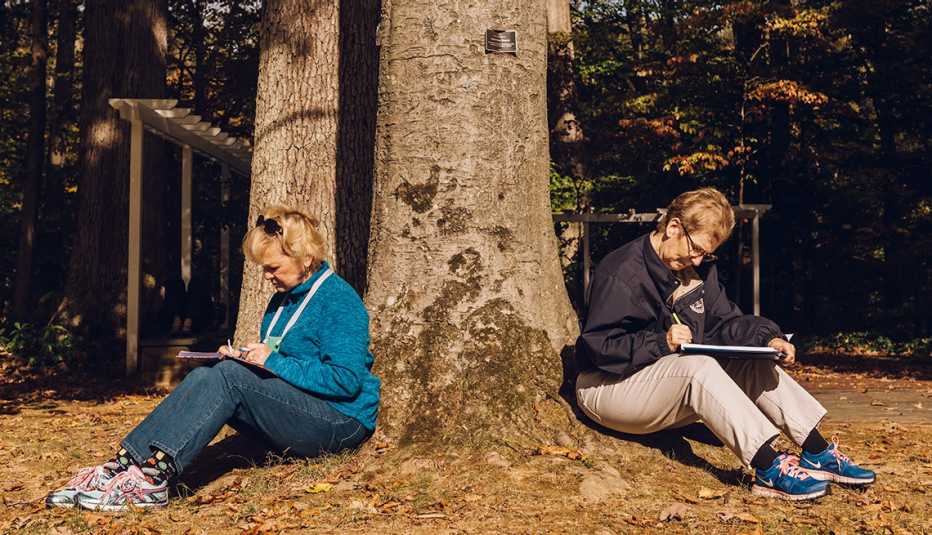AARP Hearing Center
Most of us have been through initial grief when someone has died, but bereavement in the following days, weeks and months can also be extremely difficult — especially for caregivers.
“When you look at someone who has been devoting 24/7 care to a loved one throughout a serious illness, then that person dies — now all of a sudden, they’re grieving both the person they loved and the life they lived for the last how many months or years. There could be a real void,” said Allison Stearns, executive director of Hospice Caring, a nonprofit and nonmedical hospice serving residents of Montgomery County, Md.


Michael Smith knows this firsthand. His wife, Bernita, was diagnosed with early onset dementia at 55. For seven years he cared for her, first in their home, then eventually going to her care home to help her and spend time with her daily. She died from Alzheimer’s disease at 62.
“It’s been life-altering, to give up that role of caregiving,” Smith said in an interview with AARP. After his wife’s death, Smith said he came to the realization he’s not alone.
Smith was one of 14 people who recently attended a Hospice Caring retreat, Caring for the Caregiver, for people who had lost someone in the last two years. "It put me in touch with my sense of loss, and sense of hope and opportunity,” he said.


A similar realization came to Vicci Rodgers, who also attended the retreat. She said the retreat forced her to stop and focus on herself after her great-aunt died in July. Rodgers said participants walked away with a key understanding: "a new and brighter perspective of our futures, while still remembering the loved ones we lost and cared for.”
That is one of many lessons organizers hoped participants would better understand. Hospice Caring points out that everyone’s situation is different.






































































